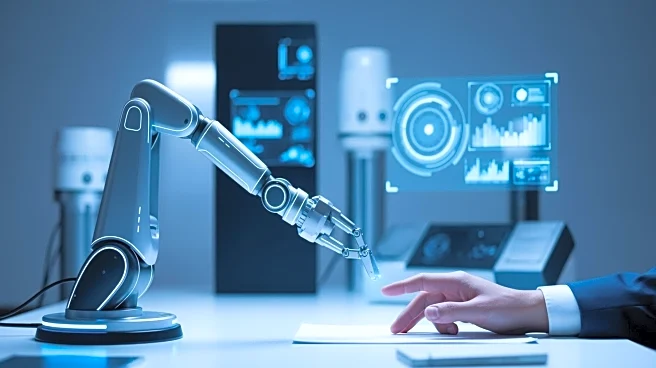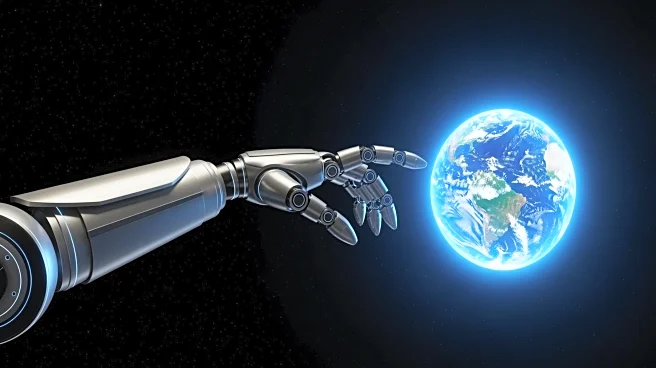What's Happening?
Nvidia CEO Jensen Huang has forecasted a significant transformation in the corporate workforce landscape, driven by the integration of artificial intelligence (AI). In a recent interview, Huang discussed
the emergence of 'agentic' AI, which refers to AI agents that will work alongside human employees. He envisions these digital workers undergoing formal hiring and onboarding processes similar to human employees to assimilate into a company's culture. Huang estimates that the market for this new AI workforce could be worth trillions of dollars. He highlighted that future workforces will likely consist of a mix of human and digital employees, with AI agents taking on roles such as digital nurses, accountants, lawyers, and marketers. Huang also mentioned that Nvidia already employs more cybersecurity AI agents than human staff to protect its proprietary data.
Why It's Important?
The integration of AI into the workforce represents a paradigm shift with significant implications for industries and employment. As AI agents become more prevalent, companies may experience increased efficiency and reduced costs, potentially leading to economic growth. However, this shift also raises concerns about job displacement for human workers, necessitating new skills and training programs to adapt to the changing job market. The potential for AI to perform tasks traditionally done by humans could lead to a reevaluation of workforce structures and employment policies. Additionally, the ethical and legal considerations of employing AI agents will need to be addressed, including issues of accountability and transparency in decision-making processes.
What's Next?
As companies begin to integrate AI into their workforces, there will likely be increased investment in AI technologies and platforms. Businesses may need to develop new strategies for managing a hybrid workforce of human and digital employees. This could involve redefining roles, responsibilities, and performance metrics. Policymakers and industry leaders will need to collaborate to establish guidelines and regulations to ensure the ethical use of AI in the workplace. The transition to an AI-augmented workforce may also prompt discussions on the future of work, including the potential need for universal basic income or other social safety nets to support displaced workers.
Beyond the Headlines
The rise of AI in the workforce could lead to broader societal changes, including shifts in education and training systems to prepare future generations for AI-related careers. There may also be cultural implications as organizations adapt to new ways of working and interacting with AI agents. The potential for AI to enhance productivity and innovation could drive economic growth, but it also poses challenges in terms of ensuring equitable access to AI technologies and preventing the exacerbation of existing inequalities.










